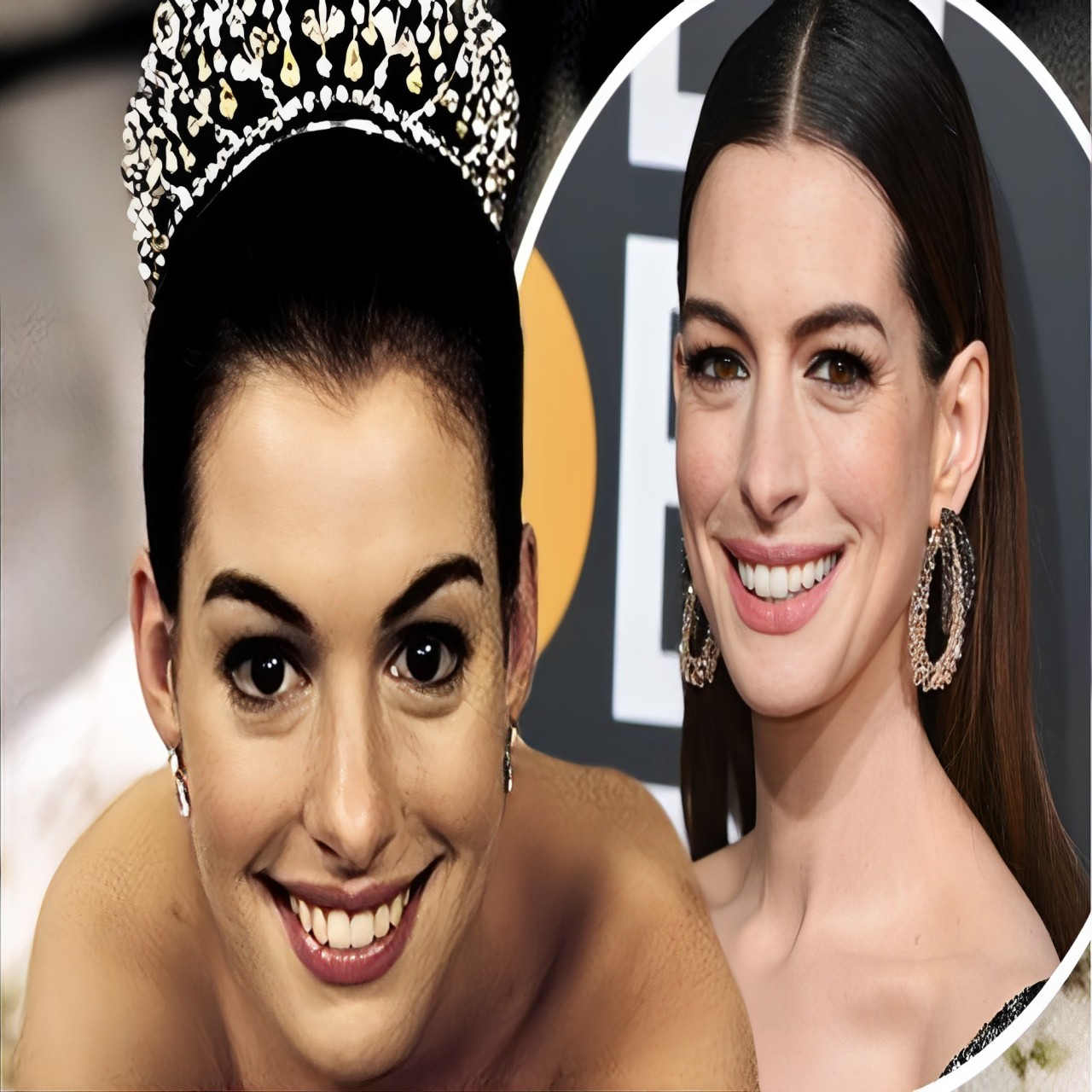I don’t want to read about John Muir anymore. I know his story after studying Environmental Science and Policy because it flows throughout the curriculum. I’ve grown tired of single-lens environmental narratives that prioritize male, mostly white, perspectives. Why are their legacies considered mandatory education while conservationists of color go unstudied and underappreciated?
Since studying environmental science as an undergraduate, I’ve been on a journey to uncover the stories of Black women and their contributions to environmentalism. We’ve always been a part of environmental history, but seldom have our stories told and amplified.
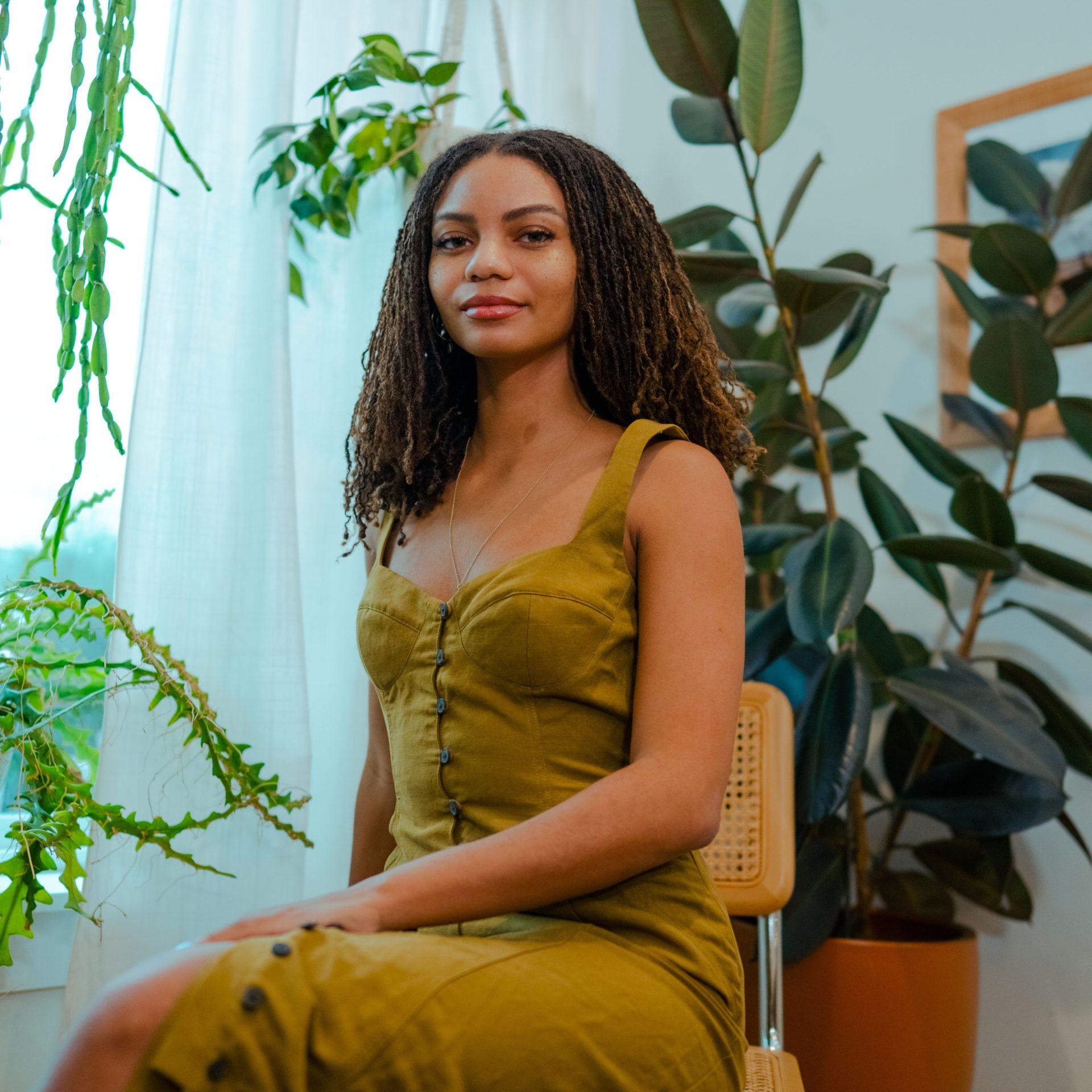
At times, when I was the only Black student in an environmental class or the only Black employee at an environmental organization, it was easy to feel like I didn’t belong. But as I discovered the stories of Black women who had come before me in this space, I began to feel empowered. I developed a deeper understanding that my ancestors were also environmental heroes who cared for the earth in their own way. Today, Black women are reshaping the future of environmentalism in every field, from ecology to fashion and beyond.
These five Black women environmentalists are now my heroes. Their contributions helped propel me to start my own organization, Intersectional Environmentalist.They have served as my role models and some have become dear friends. My hope is that when more Black girls around the world can easily see themselves reflected, they’ll know they belong in the world of environmentalism.
Betty Reid Soskin
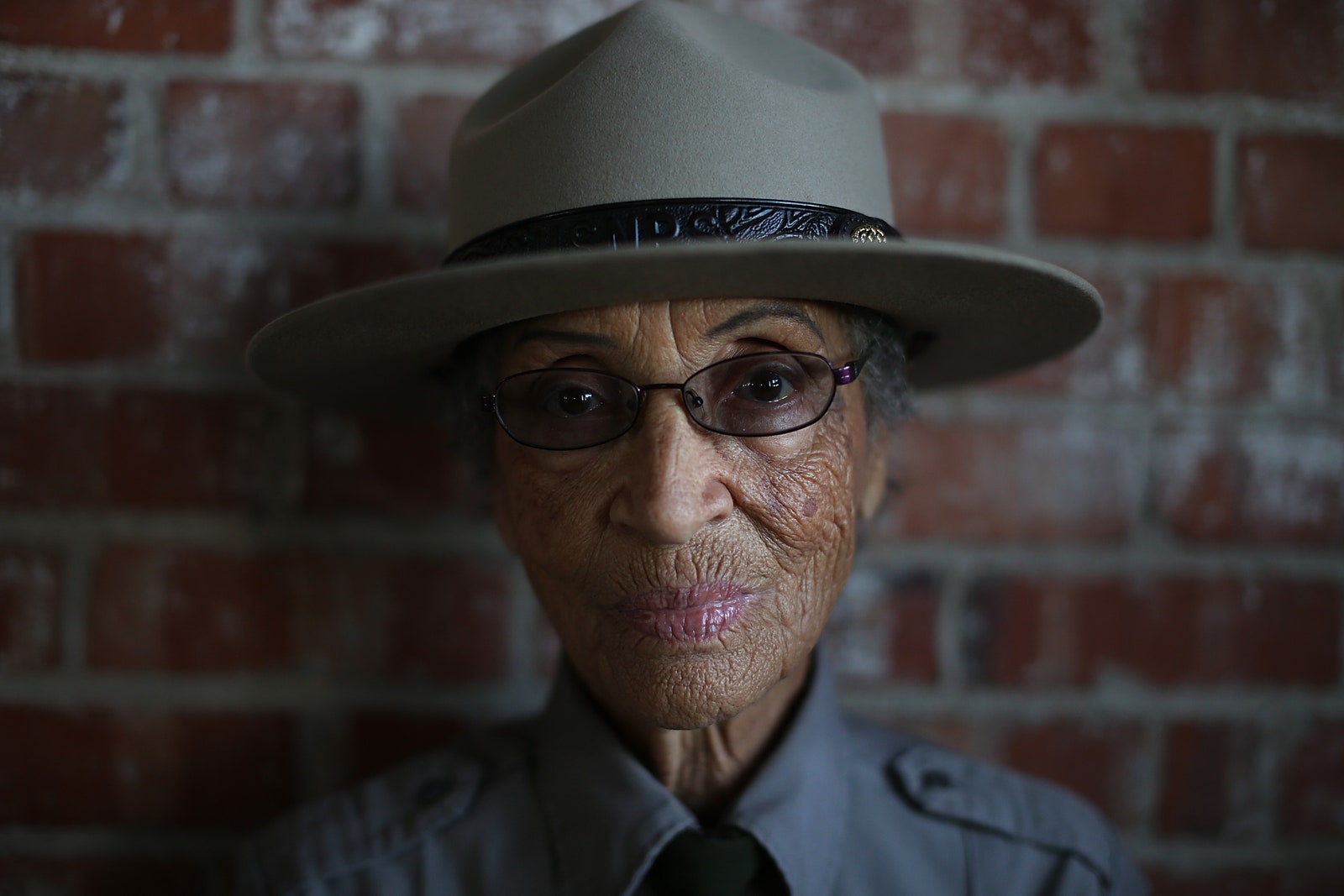 Betty Reid Soskin poses for a portrait at the Rosie the Riveter/World War II Home Front National Historical Park in 2013.Photo: Getty Images
Betty Reid Soskin poses for a portrait at the Rosie the Riveter/World War II Home Front National Historical Park in 2013.Photo: Getty Images
In March 2022, just a few weeks shy of her retirement, I went to meet with Park Ranger Betty Reid Soskin. At 100 years of age, not only was Betty the oldest full-time National Parks Service ranger, but also one of few Black women in the field—a part of Black American environmental history. She became a Park Ranger at 85 after working as a writer, singer, and civil rights activist. Working at the Rosie the Riveter WWII Home Front park, Betty helped educate visitors on the history of Black Americans in the Bay Area of California during WWII. There are many reasons why Betty is an environmental hero, but I particularly admire her courageousness to begin anew at 85 and dedicate her time to diversifying the stories told at National Parks.
Hazel M. Johnson
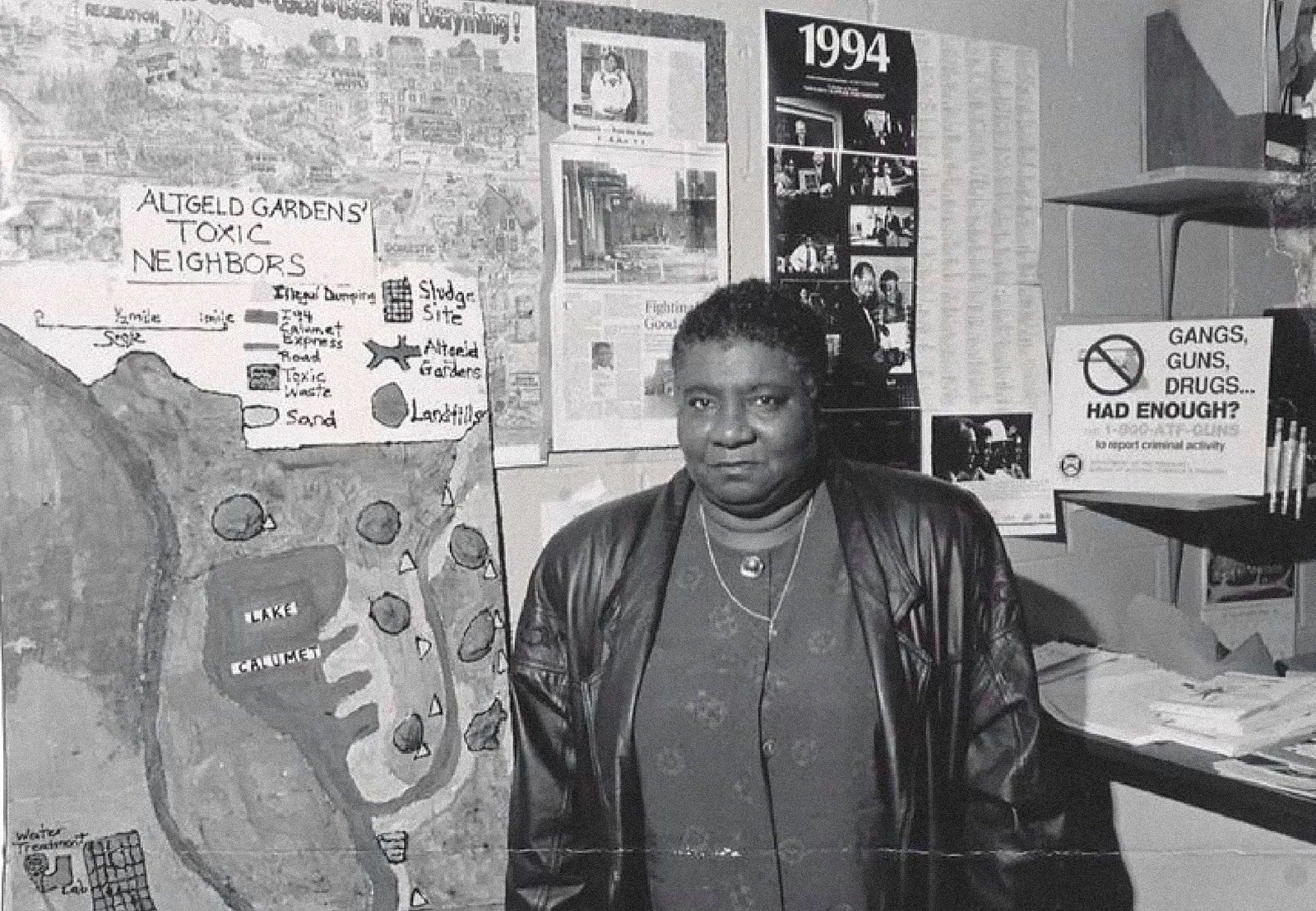 Hazel M. JohnsonPhoto: Courtesy of People for Community Recovery
Hazel M. JohnsonPhoto: Courtesy of People for Community Recovery
Hazel M. Johnson is largely responsible for the environmental justice movement we have today, the one that advocates for environmental protections for Black and brown communities. As I explore in my book, The Intersectional Environmentalist, Hazel fought for clean air and water in addition to raising awareness about the health impacts that affected her community in Chicago, which was located on top of a toxic waste site. Through her advocacy and discovery that many Black communities were disproportionately surrounded by environmental hazards, Johnson changed the history of the environmental movement and sparked new research that analyzed the relationship between identity and environmental hazards. She founded the organization People for Community Recovery in 1979 to address both environmental and renters’ rights concerns in her community. By doing so, she helped spark the creation of similar environmental justice organizations around the world.
Teresa Baker
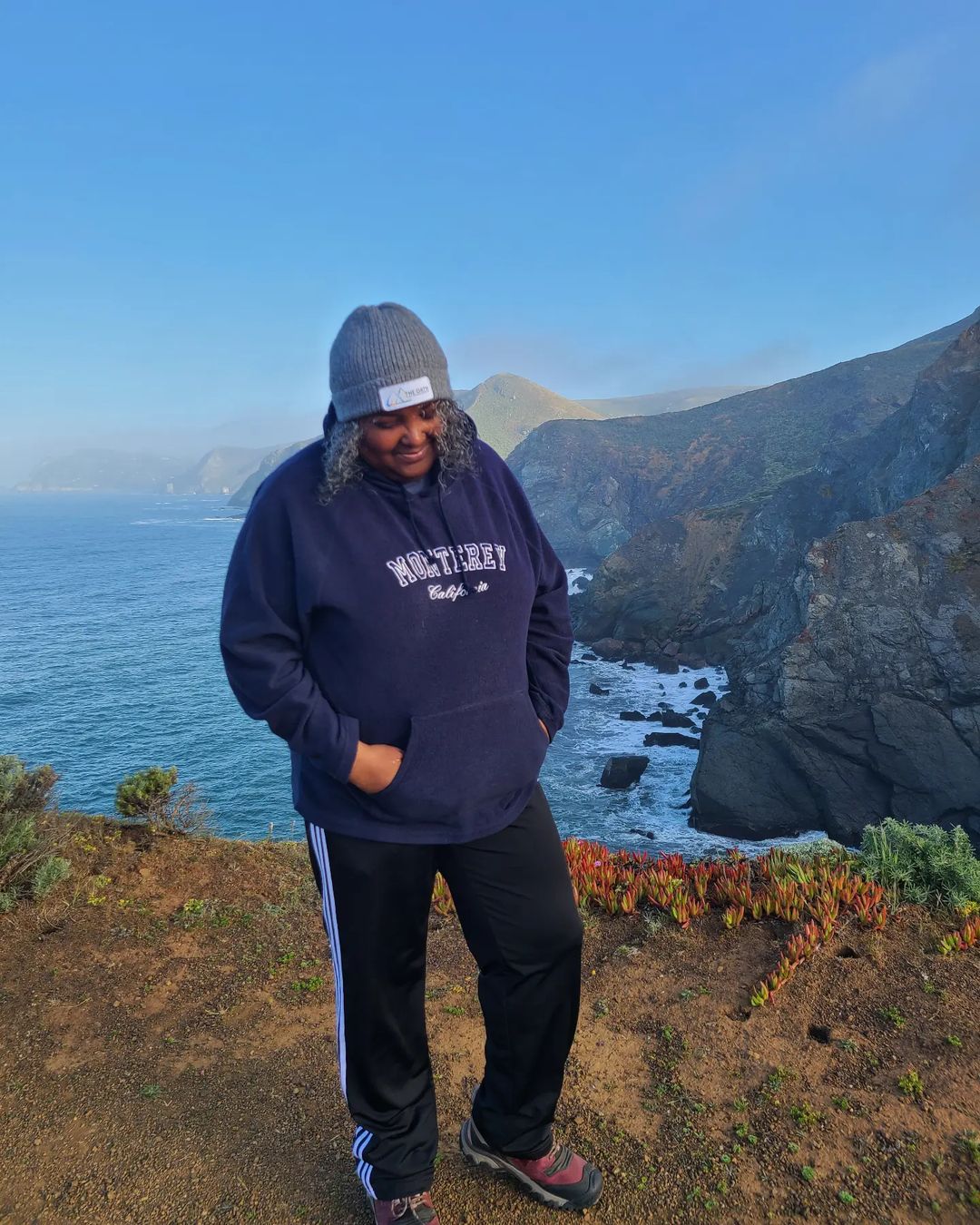
I met Teresa Baker while I was working at Patagonia HQ in 2019. At the time she was championing her Outdoor CEO Diversity pledge, a call to action for outdoor brands, organizations and retailers to enhance representation across staff and executive teams, media and marketing, and through their athletes and ambassadors. The pledge was signed by over 50 leading outdoor brands and her advocacy has increased representation for outdoor brands and organizations globally. What made her a hero to me is that she took the time to meet with the BIPOC affinity group I was a part of at Patagonia to listen to our stories and provide tips to navigate an industry that historically excluded us. I walked away feeling empowered and started to understand the importance of coalition building. Now, Teresa has co-founded the nonprofit organization The Outdoorist Oath, which provides a workshop for people who want to make a commitment to equity in the outdoor industry and environmental space.
Gloria Walton
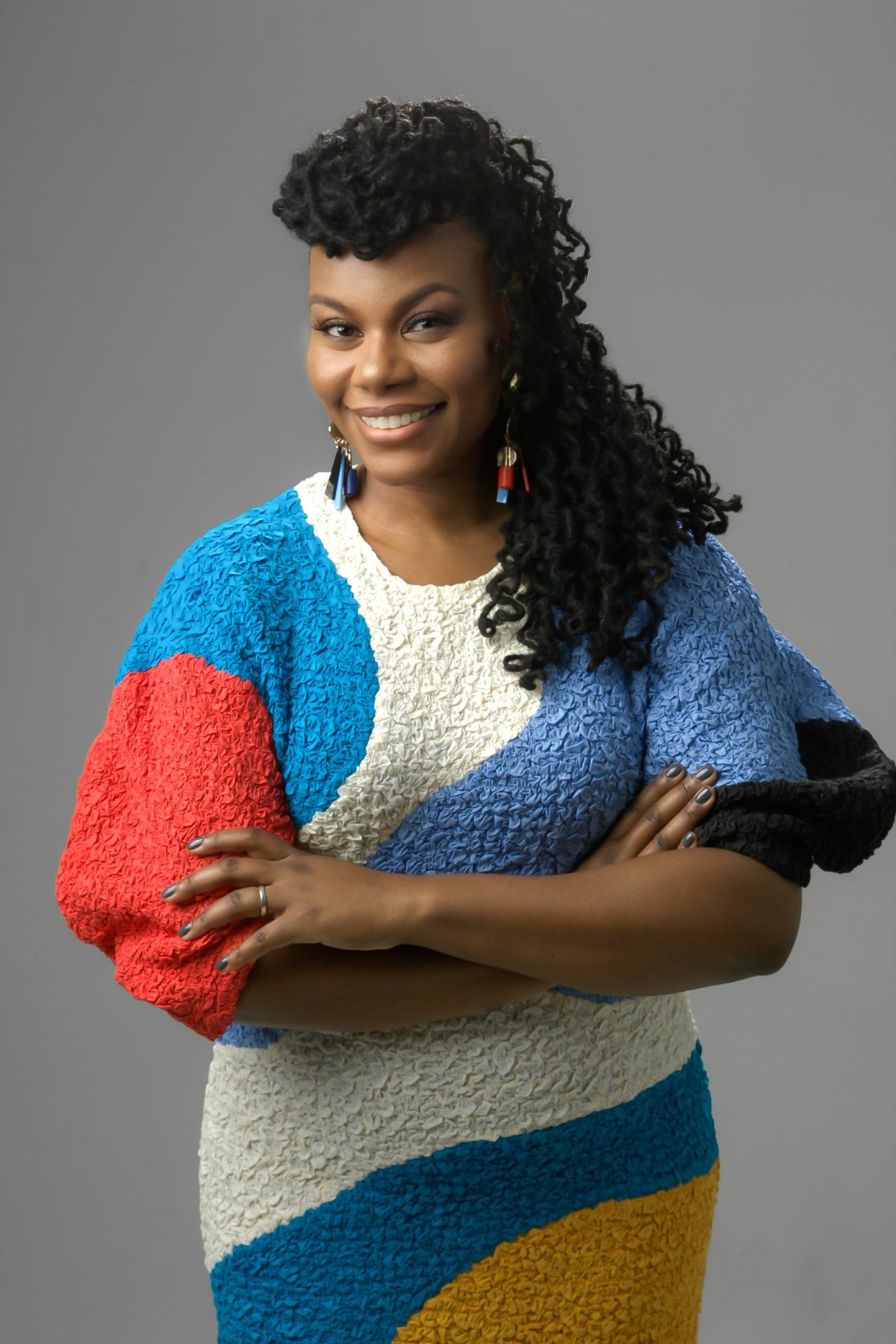
Gloria Walton is the President and CEO of the Solutions Project, an organization that brings grants, media training, and celebrity support to local renewable energy and climate justice organizations and initiatives. Her organization invests 95% of their funds into grassroots environmental organizations with leaders of color, prioritizing women. The millions they’ve directed to smaller organizations has expanded climate justice work around the world and is a great example of wealth redistribution in a field that often prioritizes white-led conservation organizations within philanthropy.
Dr. Rae Wynn-Grant
Dr. Rae Wynn-Grant is a large carnivore ecologist and is one of the first Black professors at The Bren School at UC Santa Barbara. Her class on Decolonizing Conservation and her work in the ecology field is helping make environmental science accessible to diverse audiences. She believes saving wildlife and wild places is dependent on the equitable participation of people who live in these places. I had the privilege of guest lecturing for her class at UCSB and am looking forward to her upcoming book on the subject and listening to her PBS podcast, Going Wild with Dr. Rae Wynn-Grant.
These are just a few of the many Black women environmental heroes who have impacted the way I view environmentalism. I’m also so inspired by the ways Dominique Drakford and Whitney McGuire of Sustainable Brooklyn look at sustainability education with an African diasporic lens, as well as the work of Evelynn Escobar of Hike Clerb and Rue Mapp of Outdoor Afro who are helping Black women reclaim our place in the outdoors through organized hikes and gear distribution.
Beyond their accomplishments, what makes these women inspirational to me is their desire to create space for other Black women and inspire a new generation to continue their work. That’s what’s extra special about Black environmental history: it’s supportive and rooted in community.





